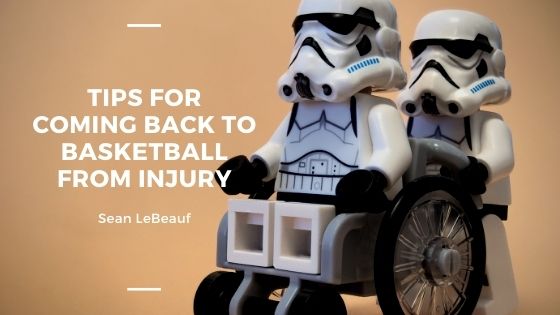In any sport, it is common for players to experience some type of injury. It is plausible in a sport such as football, where physical contact occurs in every single play. It is also plausible in sports such as baseball and hockey.
Clearly, it is to be expected that injuries will occur in the game of basketball. Non-contact injuries have often occurred from cuts to the basket or from simply running up and down the court. Contact injuries have often occurred from hard fouls.
Nevertheless, injuries are part of the game, and it’s necessary for one to learn how to come back from these injuries in an ideal fashion.
Consistency
The athlete must be consistent in receiving the proper treatment and following the wishes and desires of medical staff as far as rehab is concerned. One has to have a consistent plan for recovery that they must stick to. These plans come in many forms—for example, some CrossFit competitors treat their injuries using stem cell injections. This, of course, isn’t a standard recovery plan, but one option of many available to injured athletes.
Some injuries may require that one re-train themselves in terms of what their body can do during the process. Re-training one’s body is bound to be frustrating, but it’s a necessary step to get the athlete back on the field healthily; there’s no room for poorly-recovered athletes in sports.
Take Your Time
One has to be sure not to push themselves too hard in the rehab process. Some injuries may take longer to recover from others. If one suffers a non-contact ACL injury in basketball, it may take several months to fully recover from the injury. The process for recovery will be long and will require patience and discipline.
The benefit of not rushing the process will have a positive impact physically and mentally as well. It’s possible that some extended time off repairing your body can help to fortify your mindset. As a result, one can return to the court physically and mentally stronger. Also, one can trust the process of recovery more if they trust their body.
Don’t Stress
One of the biggest deterrents to a good recovery is stress. One needs to be mindful of their levels of stress during this process. It’s easy for an athlete to get into a mental funk when they are away from the action for a while. One can do this by celebrating every step forward in the recovery process.


